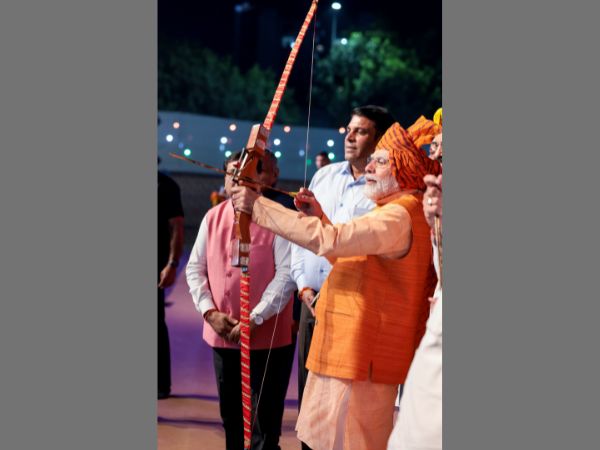- Thursday, December 26, 2024
Speaking at the event at Ram Leela Maidan in Dwarka in New Delhi, the Indian PM said ‘Ravana Dahan’ should not be only about effigy burning but also about forces that try to divide ‘Maa Bharati’ in the name of casteism, regionalism.

By: Shubham Ghosh
INDIAN prime minister Narendra Modi on Tuesday (24) urged people to root out social factors such as casteism and regionalism while making an address on the occasion of the Hindu festival of Dussehra in New Delhi.
He also called upon them to take 10 pledges, including uplifting the socio-economic status of at least one poor family in the country.
Speaking at the event at Ram Leela Maidan in Dwarka in the national capital, Modi said, “Today, ‘Ravana Dahan’ should not be only about burning of an effigy but also about forces which try to divide ‘Maa Bharati’ in the name of casteism and regionalism.”
विजयादशमी… बुराई पर अच्छाई की जीत का महापर्व। pic.twitter.com/n8bo22FErv
— Narendra Modi (@narendramodi) October 24, 2023
“The festival of Vijayadashami should also be the festival of victory of patriotism over every evil of the nation. We should take a pledge to end evils and discrimination in society. We will move forward with new energy and new resolutions on the path of development. We will together make the ‘Shreshtha Bharat,” he said.
‘Ravan Dahan’ or burning of the effigy of Demon King Ravana is observed symbolising the victory of Lord Ram over him.
Modi also spoke on the Ram Temple in Ayodhya in the northern Indian state of Uttar Pradesh.
“Today, we are fortunate to see Lord Ram’s temple being constructed on Ram Janmabhoomi in Ayodhya after a long wait. It is a sign of victory of our patience,” the prime minister, who shot an arrow at the effigy of Ravana, said.
Modi, who will seek his third straight mandate in the national election next year, also praised the Indian Space Research Organization over successfully landing the Chandrayaan-3 space mission on the lunar surface. He also said that India will soon become the world’s third-largest economy and mentioned the recent legislation that the Indian parliament passed to increase the women representation to 33 per cent in its lower chamber as well as in the state legislative assemblies.